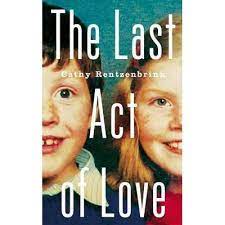As regular readers know, I've started writing a memoir and have been using this monthly blog as a kind of check in. Memoirs have been very much on my mind -- my own, those of my peers on the Curtis Brown Creative memoir course I'm doing -- a wonderful, generous and insightful group of individuals, and of course published memoirs.
When I'm writing a novel I try not to read anything too close to what I'm writing, because of the fear of influence. My most recent novel -- now on submission -- is set in 1933, and I avoided recent novels set between the wars, preferring to read books actually written in the thirties. Now that I'm writing a memoir, there isn't the same tension, because the stories themselves are so personal. I know my story; I know what happened and what I want to say, and reading twenty memoirs about other people isn't going to change that. It's wonderfully freeing: I can learn so much about different approaches to true-story-telling.
Of course there are myriad ways to tell personal stories. I can't say I've actually fixed on one yet, except that I intend not to write chronologically but to take a more thematic approach. The writers of these memoirs -- all favourites of mine -- have taken various approaches too. It's a while since I've done a Top Five, so here, in no particular order, are Five Favourite Memoirs:
I am, I am, I am (Maggie O'Farrell)
Everything she writes is original, unusual and unforgettable so it's no surprise that this memoir, arranged around a series of near-death experiences, is on so many people's Must-Have-Memoirs lists. I read it when it first came out, and intend to read it again soon.
Bookworm (Lucy Mangan)
My favourite memoirs, like my favourite conversations, are all about books, so I had to include one* memoir of reading. Lucy Mangan and I are about the same age -- OK, she's slightly younger -- and share similar tastes in books, so this is an old friend, one of the first books to take me out of my first lockdown reading slump.
* two
Bookworm (Patricia Craig)
Published a few years before Mangan's book, with the same title and even subtitle, this book also enchanted me. Belfast-born Craig's childhood in the late 50s and 60s predates both Lucy's and mine, but she grew up to be one of the first critics of the girl's school story. I love books set in places I know, and this one has the added charm of including not only some favourite books but also some libraries I know well.
Why Be Happy When You Could Be Normal? (Jeanette Winterson)
This covers much of the same ground as Winterson's novel Oranges Are Not The Only Fruit and it's fascinating to read both books, seeing how they differ. Like the novel it's darkly comic, heartbreaking and sharply observed.
The Last Act of Love (Cathy Rentzenbrink)
OK, if I'm honest, my favourite Rentzenbrink memoir is Dear Reader which is all about -- yes, reading. But in the interests of balance, and because it's a thumpingly good book, I've included her debut. Cathy's sixteen-year-old brother was knocked down and spent the remaining eight years of his live in a permanent vegetative state, with devastating effects on Cathy and her family. It's heartbreaking -- why are so many memoirs heartbreaking? -- but compulsively readable.
On a different day I might have picked five different memoirs -- I've got a stack of them on my desk as I type this, but these are all books I've enjoyed and books which have encouraged me to have a go at writing a book where I don't have to make things up.







No comments:
Post a Comment